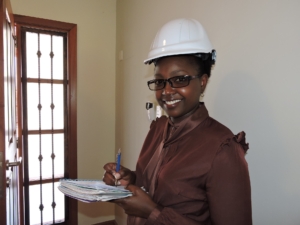

My Journey into the World of EdTech
Kat Cauchi never really had an interest in STEAM when she was younger but as she taught more, she realised how much she used these skills.
She is trying to encourage all pupils but especially girls to consider more STEAM careers.

As a woman working in EdTech, I am passionate about closing the gender gap in the tech industry. This is why I joined the Global Equality Collective and why I am happy to be a Technocamps Girls in STEM role model (GiST). I first joined the GEC when they started out as the Gender Equality Collective. I was contacted to join a part of their collective of ‘Women working in tech’ as they were looking to find expertise in this area as part of their mission of closing the gender gap in STEAM. I have been amazed at how they have grown into an organisation for all things diversity, inclusion and equality.
Where did this interest come from?
For me, I want to encourage more girls and women to take an interest in tech and all STEAM subjects not just because of my own experiences in the tech industry, but more so from my experiences growing up. If you had asked me at school if I wanted to work in tech when I grew up, I would have given you a flat-out “no”. My experiences of tech were: creating documents on a word processor, creating my own simple website, using spreadsheets, creating a PowerPoint presentation. It was something that I thought was for people ‘smarter than me.’ Although I had some female friends who did take ICT GCSE, most of the students who did were male, and this majority only grew as I looked at the cohorts at A-level and university. I had absolutely no idea of the variety of opportunities tech could bring and how it would be embedded into daily life for so many in the future, or how versatile it could be. I would switch off; to me, it was difficult and boring and not for me.
How did my perceptions of tech change?
My perceptions of tech started to change as it became part of my daily life in teaching. I would use interactive white boards, a laptop, iPad etc. in my classroom on a daily basis – and the children were using tech regularly too. This showed me that, used in the right way, tech can have real benefits in educating pupils – plus other wins, such as saving me time and reducing my workload. Additionally, my husband has a degree in Computer Science and works as a Software Engineer, and through conversations with him, I saw some other interesting aspects of tech. I also appreciated all his technical skills and support (and still do!). I also thought about my interests, for instance, how I really enjoy video games and how this was just another strand of the technology web.
My journey into working in EdTech
During my time teaching, I started to look for a new challenge. I knew I loved working within education and wanted to continue within that field, just in a different role. I heard about the position at NetSupport as product manager of ReallySchool. This was something the school I was working in was helping to develop and was a tool to help them to evidence learning, monitor progress, reduce staff workload and so on. What particularly interested me about the role was that the advertisement specifically requested someone with teaching experience. I knew that the company valued the education community and knew Al Kingsley (the CEO) was very passionate about education and has many roles in it himself. It was good to know the company I could potentially move into had values like my own. I remember being worried that I would not get this job as, as far as I was concerned, I didn’t have the technical skills so therefore I didn’t have much of a chance. I was wrong! What I didn’t know at the outset I have learnt on the job, and it was my background in education that was more important. This enabled me to connect with educators and ensure our product met their needs and help them with the challenges they were facing. It was also important that my team understood what educators needed and had me define priorities and next steps based on feedback from educators using our product daily. Now, three years later I also have my own podcast ‘Of Primary Importance’ and I am the editor of R.I.S.E. magazine! All things I never would have expected to be doing if you had asked me only five years ago, but I am so glad I am!
What I want to see in education
I want to see the gender gap in STEAM closed. This all starts with education – from all the way back in the Early Years- not just when students get to secondary school and are choosing their GCSEs.
I want to see all learners understand the purpose of their learning in STEAM subjects. Why are they learning it? How can it be used? How will those skills and knowledge help them in the future? Engagement is great but there needs to be a purpose to make it stick. I never understood why I needed to learn algebra at school; it was something I found difficult, so I would just switch off. I now know that it helps to develop problem solving and critical thinking skills. Imagine if I had known that back then when I felt like it was just a waste of my time!
I had no idea growing up that there were such a plethora of different jobs in the world! It didn’t help that when I went for careers advice it was also narrowly focused on a small selection of jobs that the advisor thought I would be ‘good at.’ Really take the time with learners to explore different opportunities out there related to their interests. For example, a pupil may think, ‘If you study Science, you become a scientist,’ so here is a great opportunity to look beyond what they stereotypically expect and show them how Science plays a role in many different careers.
A colleague and I visited a primary school a couple of years ago and talked to the pupils about what we do, what skills we learnt to be able to do so, what aspects of the job we really like, what our challenges are and so on. The pupils really enjoyed hearing about this and asking us questions. They started considering different careers they may never even have thought about before. Giving pupils opportunities to hear from different professionals about their experiences can really show them what is out there and that it is available to them too.
Skills such as problem solving, communication, critical thinking, organisation and initiative are important for many different aspects of life. Really look at how these kinds of skills can be taught within the school and embedded as part of pupils’ learning throughout all aspects of the curriculum. Additionally, when you are teaching pupils new skills, give them opportunities to practise these and use them in different ways so they continue to develop them over time.
Like I said previously, I thought tech roles were for people ‘smarter than me.’ This was a misconception I had at school that wasn’t addressed until much later on. Imagine if a teacher had unpicked that and showed me it was wrong! I may have considered opportunities I hadn’t thought about and maybe had more confidence in myself too. There are a lot of misconceptions around jobs like gender stereotyping – pull these apart and give examples that show there is no job for a specific gender or ethnicity. It is all about giving our pupils the opportunities, skills and knowledge to make choices for their own futures.

How I can help you
I mentioned before how a colleague and I visited a school to talk about our careers. If this is something you would be interested in, I would be happy to help. Additionally, if you would like to talk more about encouraging pupils to take an interest in STEAM and addressing misconceptions, please get in touch.
